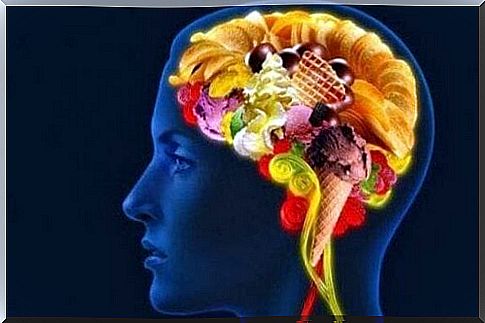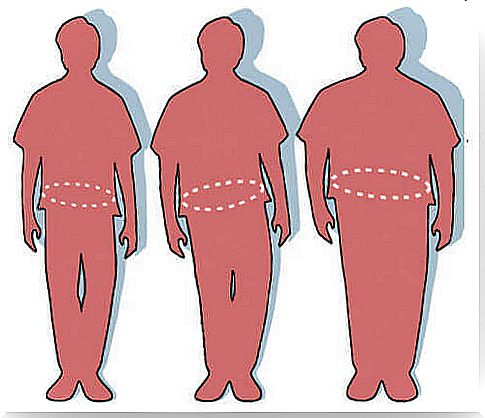The Relationship Between Emotions And Overweight

Overweight is one of the great problems of the contemporary world. Until now, science has not fully explained the microbiological processes that lead to obesity. It is known that there are multiple factors that can lead to weight gain, but some aspects are still a conundrum. For example, the relationship between emotions and being overweight.
Cases of overweight have increased around the world. The World Health Organization speaks of an epidemic, especially in countries like the United States, the United Kingdom, Mexico or China, where the number of obese people has doubled and tripled in a short time.
This situation has also created myths and prejudices about being overweight. A whole symbolic universe was built around obesity. It is often associated with lack of attention, which is not true in many cases. There are people who are perpetually on a diet, however, they do not lose weight. It is also associated with the dimension of the ugly and the undesirable. This also gives the topic a strong psychological weight.
A few decades ago, science began studying the influence of emotions on the tendency to be overweight. Low calorie diets and constant physical activity are sometimes not enough for optimal results. This has led to the belief that there are associated factors belonging to the sphere of the unconscious.
Weight and overweight
From a strictly anatomical point of view, the accumulation of fat in the body does not always indicate overweight. By increasing the amount of fat, the weight increases. It’s clear. What is not so clear is whether this increase in adiposity is reflected in a person’s overall weight. Frequently, in fact, an increase in the percentage of fat mass corresponds to a reduction in the muscle mass.

This means that a person’s weight does not necessarily reflect the amount of accumulated fat. And losing weight isn’t synonymous with being skinny. Finally, what worries many is not the weight of their body, but the shape it takes.
Fat accumulated in some areas becomes visible and undesirable, because there is an ideal silhouette pattern. An individual with small rolls at the waist or a prominent abdomen can weigh on a par with a person who is much thinner, but who has more developed muscle mass. Overall, the weight itself isn’t the problem. What affects many people psychologically is the contrast between their silhouette and the ideal one.
Unconscious factors affecting weight
There is scientific evidence that some people tend to accumulate fat with some “ease”. Their bodies have a special resistance to mobilize accumulated fat. To determine the reason for this phenomenon, we must refer to the essential function of adipose tissue: it acts as a reserve of calories or energy.

There are unconscious fantasies associated with the storage and retention of fat in the body. In general, the accumulation of adipose tissue is an adaptive response to hypothetical times of scarcity. The fat is stored so that it can be used in times of low food availability. Migratory birds, for example, increase the amount of fat mass before making their strenuous journeys.
In humans, the body accumulates fat based on a fantasy of future scarcity, conceiving it as a long-term supply. This fantasy, in turn, is linked to another fantasy of “self-sufficiency” : not needing anything or anyone other than oneself to guarantee the continuity of life.
Finally, the change in the shape of the body depends on a third fantasy: to escape from the shape, or to break the norm. In this case of the real form.
The scholars conclude by stating that being overweight could be a form of defense linked to an unconscious conflict related to a feeling of inability. The accumulated fat is a way of reserving ourselves for an action that in the end we do not take for fear of not succeeding. The increase in corpulence would be a kind of compensation for this feeling of helplessness. Ultimately, the subject is unable to accept the unconscious feeling of inability and hides the conflict through being overweight.
In one way or another, it is necessary to differentiate the physical risk, particularly high in some people and connected to overweight, from the psychological distress generated by the mismatch of one’s body to the beauty standards imposed by society.
The truth is that the two circumstances usually coexist, so a good evaluation is important and fundamental. In this sense, it is possible to use the patient’s motivation linked to the desire to be in shape to follow certain exercises and a precise diet, together with the metabolism, are the main factors in weight regulation.









